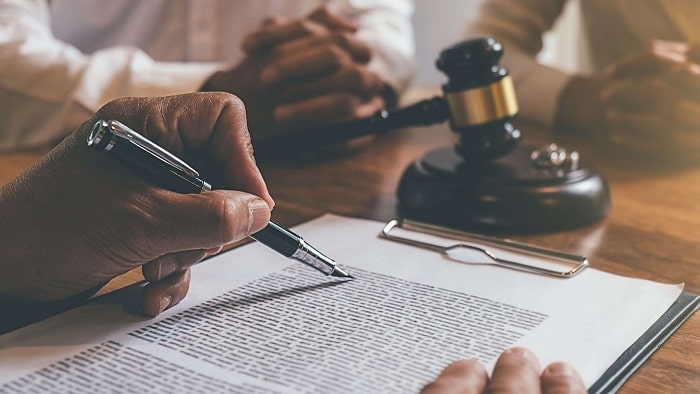What are the California Rules of Evidence?
If you have been arrested for a crime in the state of California, you will be seen before a judge and a jury of 12 community members or jurors. Your California criminal defense attorney will examine your case and gather information to mount an effective strategy to plead on your behalf and with any luck, get you off.
The judge and the jurors will listen to all evidence presented from both the prosecution against you and your attorney fighting for you. After they hear all the information the jurors will get together and make a determination on if they believe you are guilty or innocent.
To obtain a conviction every juror must agree that you are guilty. When you are facing serious California criminal charges, only the most experienced and effective legal defense will do.
A criminal charge doesn’t just mean jail time and hefty fines, but it is also a dark stain on your permanent criminal record that will follow you around for the rest of your life. This blemish on your record will negatively impact potential opportunities you have for relationships as well as professional development.

What Type of Evidence is Allowed in a California Criminal Trial?
The Los Angeles criminal defense attorneys at the Manshoory Law Group understand how important it is to preserve freedom and help those facing criminal charges in California have their constitutional rights protected. The Los Angeles criminal defense lawyers at the Manshoory Law Group are deeply committed to helping defendants have their charges reduced, when possible dropped completely, or help their clients avoid a conviction.
During the California criminal trial process, the majority of the time will be spent presenting the evidence collected from both sides. The California rules of evidence dictate what types of evidence are acceptable in a court of law.
Attorneys have a plethora of options to produce for the jury. Some of the types of evidence that attorneys will put forth include viable witness testimony, videos, photos, documents, emails, texts, phone records, audio files, etc.
The following are the California rules of evidence that are lawfully able to be used in court:
- All evidence produced must be relevant
- Rules defining who is a competent witness allowed to provide testimony
- All evidence must be dependable and trustworthy
- Rules dictating how attorneys can examine and cross-examine witnesses
- Hearsay is not acceptable evidence
- Past actions which try to speak to one’s character is not permissible
- The right exists to refuse to testify or provide certain information
- It is not lawful to prevent someone from testifying in court
- Evidence that can be misleading or cause the development of prejudice is not permitted to be used in court
If any of the California rules of evidence is violated, that piece of evidence may be barred from being used when the jury is considering their verdict. Should a violation exist during a trial but a judge doesn’t throw it out and you are convicted as a result, you could potentially appeal the decision on the basis that evidence used against you was unsuitable.
Do You Need to Speak to a Los Angeles Criminal Defense Attorney?
Don’t take any chances when it comes to choosing legal counsel that could be sub-par. Poor and inexperienced legal representation could be the difference between prison time and freedom. For the highest-quality criminal legal defense strategy in the greater Los Angeles area, connect with the resourceful and talented California criminal defense lawyers at the Manshoory Law Group.
The Manshoory Law Group is available to you any time, day or night so call 877-977-7750 today.
